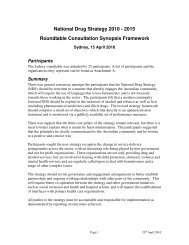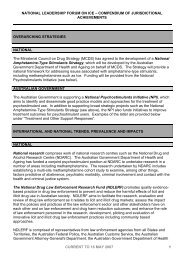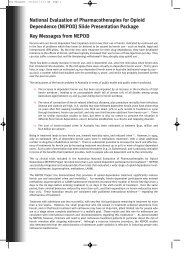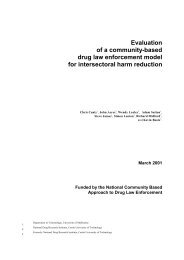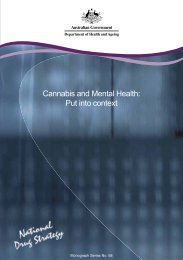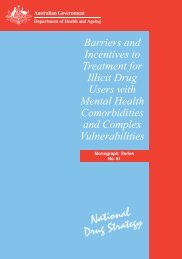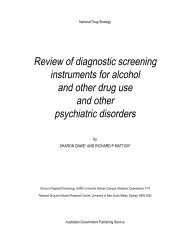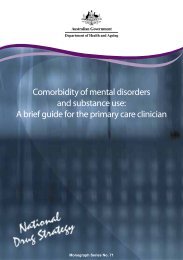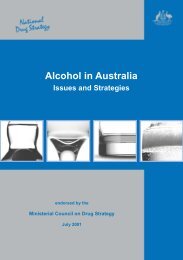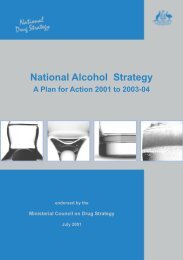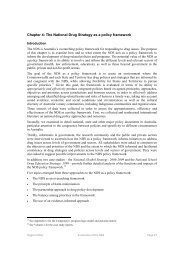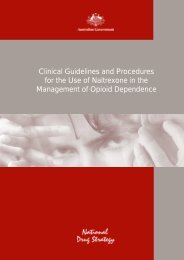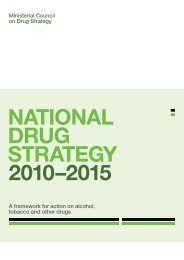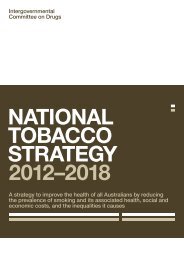Submission by Imperial Tobacco Australia Limited (PDF 600 KB)
Submission by Imperial Tobacco Australia Limited (PDF 600 KB)
Submission by Imperial Tobacco Australia Limited (PDF 600 KB)
Create successful ePaper yourself
Turn your PDF publications into a flip-book with our unique Google optimized e-Paper software.
figures set out below, ITA would challenge the accuracy of this statement. Importantly, the<br />
consultation paper also notes that „continued effort is required to prevent an increase in<br />
the availability and use of illicit tobacco products …‟, acknowledging concern that higher<br />
prices may lead consumers to substitute legal products with illegal ones.<br />
There is strong evidence to support the view that there is a direct causal link between<br />
increases in tobacco prices and increases in illicit trade in tobacco. This is due<br />
predominantly to the fact that duty and/or excise are not paid on illicit tobacco products,<br />
making them less than half the price of legal products. A recent report prepared <strong>by</strong><br />
Deloitte states: „The illicit tobacco market in <strong>Australia</strong> for 2011 is estimated to total 2.264<br />
million kilograms of tobacco which is equivalent to 13.4% of the estimated legal tobacco<br />
market … The proportion of survey respondents who reported purchasing illicit tobacco<br />
has increased since 2010.‟ Deloitte‟s tracking of illicit tobacco trade between 2009 and<br />
2012 shows that after a significant tobacco excise increase (25%) in 2010 there was a<br />
statistically significant spike in illicit trade. Subsequently, engagement in illicit trade has<br />
slowly stabilised, correlating with a stabilisation of prices for legal tobacco. ITA fears that<br />
another sharp increase in tobacco excise would result in another spike in the number of<br />
consumers who substitute legal, properly regulated, tobacco products for contraband,<br />
counterfeit or unbranded (loose) tobacco products.<br />
The illicit trade in tobacco significantly undermines a number of public health initiatives<br />
relating to smoking. First, illicit tobacco products have not been manufactured in a<br />
regulated environment, may contain unknown substances and otherwise not comply with<br />
<strong>Australia</strong>n manufacturing requirements (such as Reduced Fire Risk compliance). Second,<br />
the levels of tar, nicotine and other ingredients in cigarettes sold on the black market are<br />
not subject to government regulation or scientific scrutiny. Third, pushing consumers<br />
towards illicit trade exposes them to criminal groups who demonstrate no regard for public<br />
safety and health, rather than encouraging consumers to engage with responsible<br />
manufacturers and retailers. Anecdotal evidence suggests that criminal groups often<br />
supply tobacco to children, who may not represent a profitable market for illicit trade<br />
without the additional adult demand for black market tobacco products. In short, criminals<br />
involved in the manufacture and supply of illicit tobacco products are unaccountable for<br />
their products and their activities, engaging in a range of conduct that is directly conflicting<br />
with the public interest.<br />
Any further increase in excise tax would undermine the work undertaken <strong>by</strong> the industry,<br />
business groups and government authorities to combat illicit trade in tobacco products.<br />
Finally, the illicit trade in tobacco products also undermines the government‟s revenue<br />
raising capabilities as taxes cannot be collected from illegal sellers of cigarettes.<br />
Approximately $1 billion in revenue is lost annually as a result of the tobacco black market<br />
and the livelihoods of many small businesses are put at risk.<br />
The above Deloitte report also demonstrates that consumers have a high level of<br />
awareness of the availability of cheap illicit products. The consultation paper<br />
acknowledges that „[i]n 2010, nearly half of smokers aged 14 years or older had seen or<br />
heard of unbranded loose tobacco known as “chop chop”.‟ The awareness of these<br />
products, and their continued availability, makes the potential for consumers to move to<br />
illicit tobacco as a result of sharp tax increases greater. ITA submits that the government<br />
should be concerned particularly about low income consumers feeling pressure to<br />
substitute expensive legal products with comparatively inexpensive illegal products. Lower<br />
income consumers have higher price elasticity than higher income consumers. The<br />
consultation paper acknowledges this <strong>by</strong> stating that „[o]ver the period January 1999 to<br />
3



